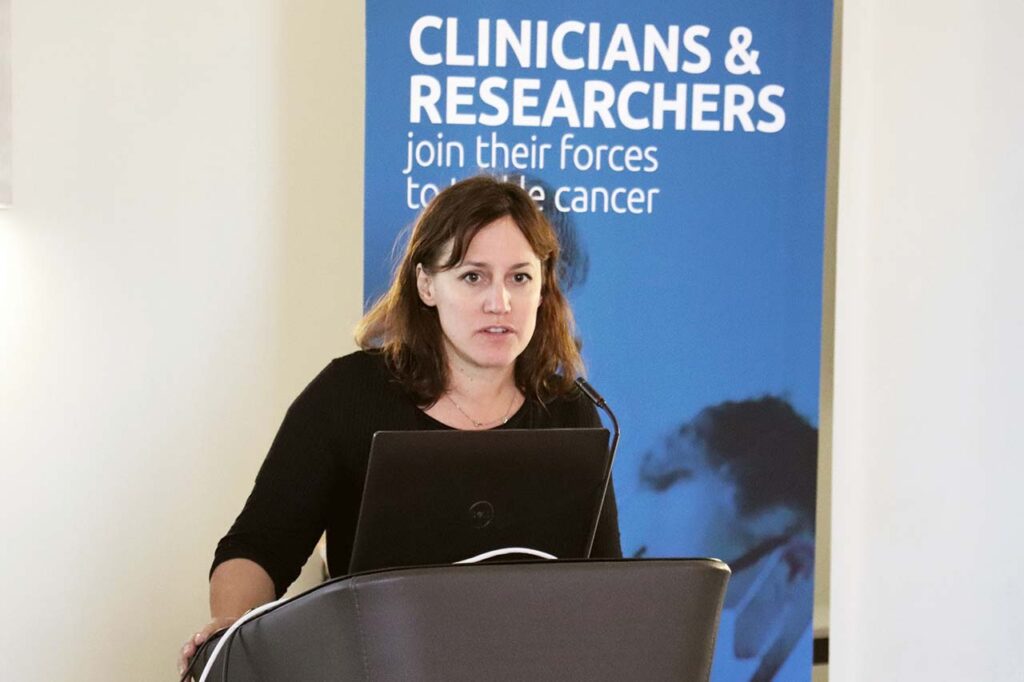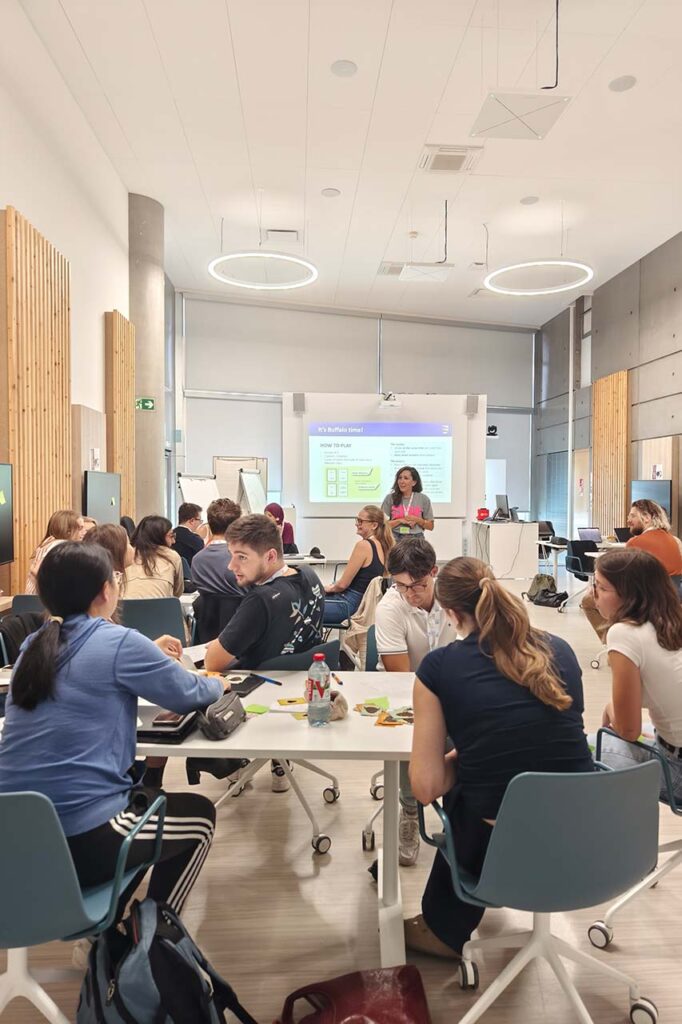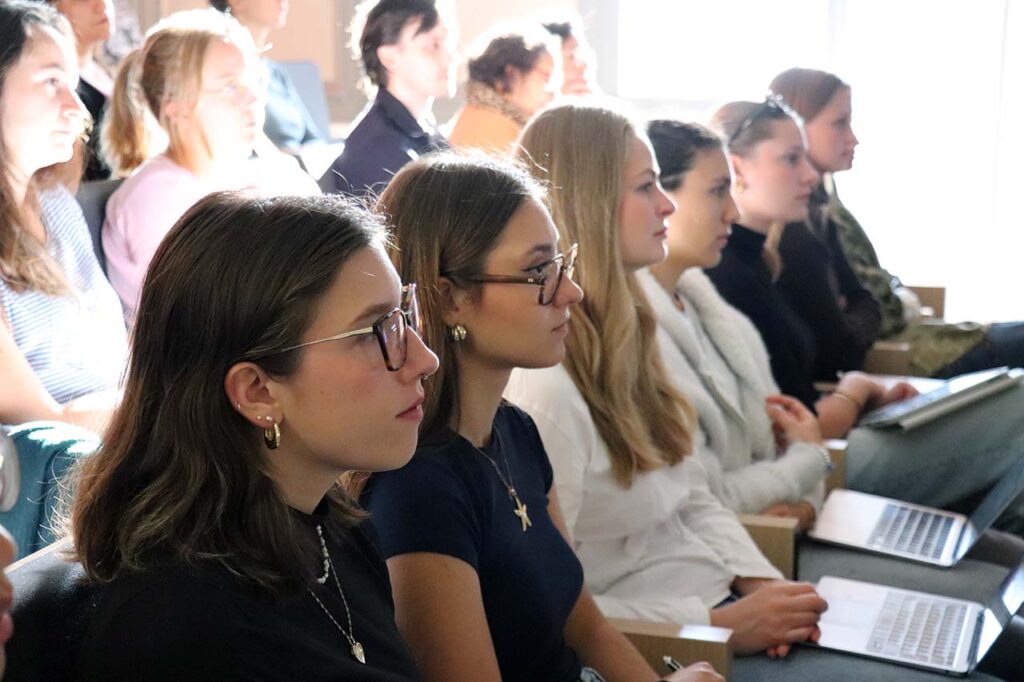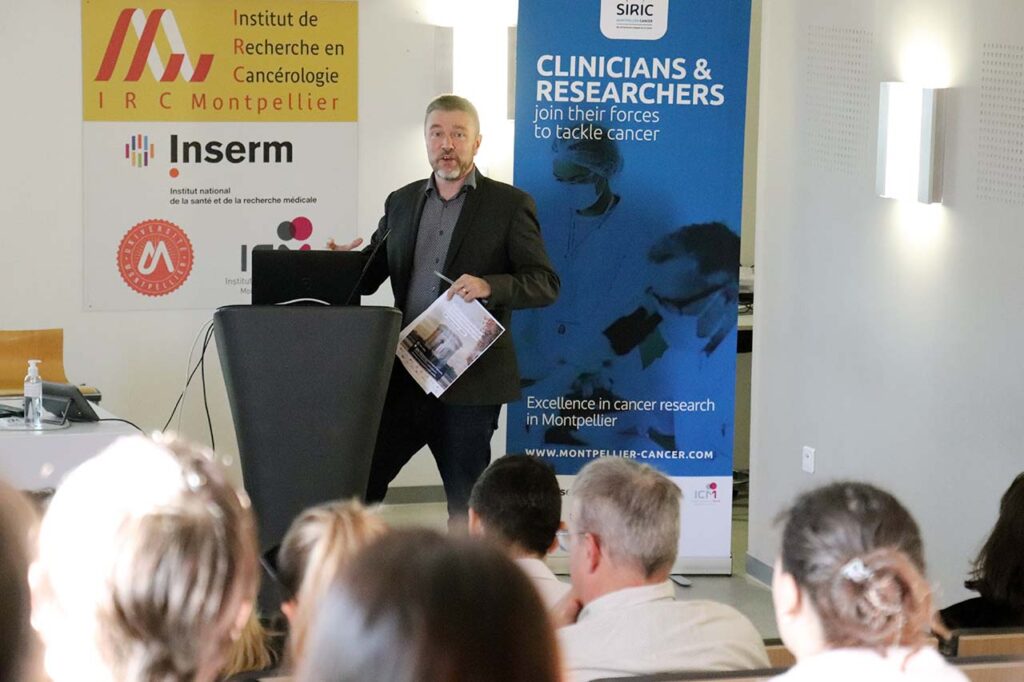Fostering the link between research and education
As part of the Charm-EU alliance, the University of Montpellier, in collaboration with SIRIC Montpellier Cancer, launched the second edition of an international interdisciplinary module on September 24, designed to strengthen the link between research and training. The goal: to produce future researchers who are better prepared for high-level international and interdisciplinary research.

Training our future researchers by helping them understand research issues that are closely linked to patients' needs: this is the educational and scientific challenge addressed by the experimental module entitled "Addressing health challenges in internationally connected research hubs," or "Research hubs" for short. This international module, taught entirely in English, was designed by the University of Montpellier and Utrecht University in collaboration with SIRIC Montpellier Cancer as part of the CHARM-EU alliance.
While the 2024 edition was inaugurated by an international conference focusing on colorectal cancer screening and treatment, this year's theme continues to focus on therapeutic approaches to fighting cancer. But with a different angle: immunotherapies. Once again, the event brought together clinicians, researchers, and patient associations. Whether in person or online, everyone came to share their expertise with some 30 international students from the University of Montpellier and Utrecht University. The various presentations reviewed cutting-edge research and its use in therapeutic processes, as well as common toxicities in immunotherapies. These discussions were enriched by poignant testimonials about patients' care journeys.
Combination therapies and terrain issues
A conference that launched the second edition of an experimental module whose mission is to enrich the link between research and education by taking advantage of the educational interactions between Utrecht and Montpellier. This is thanks to the commitment of coordinators from the fields of education and research who believe in the potential of this new way of transmitting and teaching knowledge. This is the case for Sandra Crnko and Niels Bovenschen at Utrecht University, and Sonia Cantel and Gilles Subra at Montpellier University. For the latter, Professor the Max Mousseron Biomolecules Institute (IBMM) and also project manager at UM for the CHARM-EU alliance of European universities, the module has two benefits: "It covers all aspects of immunology and its use in cancer research, a subject that is being studied extensively worldwide, particularly with the emergence of combination therapies. It is all the more interesting because Montpellier is home to some of the best researchers specializing in this field. "
That is why not only SIRIC Montpellier Cancer, but also the Montpellier Cancer Institute (ICM), the Montpellier Cancer Research Institute (IRCM), the Immune4Cure University Hospital Institute, and FHU Evocan-2 are involved in the module. "From a more educational point of view, the way students learn here is completely different from what is done elsewhere," continues Gilles Subra. " We confront them with research problems, but concrete problems in the field, the ones that arise at the patient's bedside. From the outset, they know that they will be studying and working in groups to find solutions. However, as they come from either Montpellier or Utrecht, they do not have the same education or scientific training."



Develop valuable skills
However, it is through cross-disciplinary teams that students in the Research Hubs module will propose research projects related to immunotherapies, with the support of an international network of researchers working on this topic. This is the best way to develop valuable cross-disciplinary skills for conducting international research. What skills? Knowing how to write proposals and secure funding, working collaboratively, managing when necessary, knowing how to communicate and engage with colleagues from other disciplines, demonstrating curiosity, and embracing a problem from its most fundamental aspects to its societal implications.
"We are touching on transdisciplinarity in all its richness ," insists Gilles Subra. What makes a good researcher is their ability to work in a group, because you never have all the skills you need to carry out a project on your own. For Sonia Cantel, also a teacher-researcher at IBMM, it's another way of introducing them to the world of research: "As educators, we want to show them that they are capable of using their scientific knowledge sensibly and productively to address a specific issue. "
What happens next? The five teams will present their research projects at the end of December. Then, at the beginning of next year, several of the students will undertake internships at research centers in Montpellier or Utrecht to continue their practical immersion in research. As for the module itself, the 2026 edition is expected to focus more closely on immunotherapies for the treatment of autoimmune diseases. New challenges lie ahead, and not the least of them.
Research hubs: An easy-to-implement CHARM-EU module
According to Gilles Subra, this type of module is an easily reproducible model that should be tested in other disciplines. "Thanks to the educational engineers and colleagues involved in this, we have material that is truly ready to use, "he says enthusiastically. Any discipline could adapt this model: a public lecture on concrete topics, current research issues, bringing in people from civil society, NGOs, then interdisciplinary group work and a small project... It's an easily adaptable and financially sustainable model. With the support of the UM's CHARM-EU teams, we can help any motivated colleague to integrate it into their own master's program."
Would you like to internationalize your projects (teaching, research, exchange programs, etc.) with Charm-EU? Contact us.
Are you a student or professional interested in learning more about our training programs?
- the online course platform
- Master's degree in Global Challenges for Sustainable Development
To learn more about the Charm-EU alliance of European universities and follow our news:
- visit our website Charm-EU
- subscribe to our newsletter